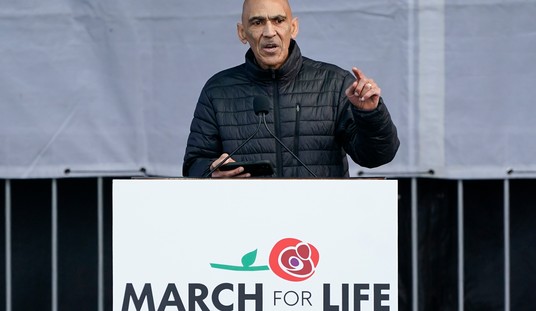For many, an embargo on Russian oil was a necessary and obvious response to Putin’s invasion of Russia. During his announcement of the embargo, Biden even made the case that the embargo targets “the main artery of Russia’s economy,” and that it would “deal another powerful blow to Putin’s war machine.”
But this was no moment of leadership for Joe Biden. Instead, this was Biden caving to political pressure from a rarely unified Congress, effectively announcing to the world that politics, not a master strategy, is dictating his actions in dealing with a major world superpower. While the Biden administration has always kept the embargo on the table, a week ago, it was the administration’s position that the United States did not “have a strategic interest” in sanctioning Russian oil.
“We don’t have a strategic interest in reducing the global supply of energy,” principal deputy press secretary Karine Jean-Pierre told reporters last week. The White House was clearly relying on the private sector to cut ties with Russia as a means of punishing Putin and only saw hitting Russia’s energy sector as something that might happen down the road.
“We and our allies and partners have a strong collective interest to degrade Russia’s status as a leading energy supplier over time. That’s why we’ve been talking about diversification. That’s why we shut down Nord Stream 2. That’s why we’re helping to accelerate diversification for Russian gas. And that’s why we’re denying critical technology inputs that Russia needs to maintain its production capacity in oil and gas,” Jean-Pierre said.
Even this is a flip-flop. Last year, Biden waived sanctions on Russia’s Nord Stream 2 pipeline, a huge gift to the Kremlin and Russia’s energy sector. Russia was no less our enemy then than they are now. Yet Biden cared more about hampering our own domestic energy production than the consequences of empowering Putin. Republicans even argue that Biden’s failure to sanction Russian oil was effectively funding Russia’s invasion of Ukraine, yet for two weeks, the Biden administration resisted sanctions.
The only logical conclusion is that Biden has no actual strategy for dealing with Putin. Instead of well-thought-out strategic chess moves with a specific endgame in mind, Biden is taking actions to address short-term political goals. For example, Biden could have imposed sanctions on Russian energy before the invasion, and it may have even prevented the war.
“If you had started sanctions months ago, there would not have been war,” Ukraine President Volodymyr Zelenskyy told members of Congress on Saturday morning. However, Biden refused to do so, even though several officials agreed that such an action would have been a deterrent.
Will Biden’s embargo help end the war? We can only hope. Certainly, Biden will attempt to take credit for strongarming Putin, even though the embargo was by no means Biden’s “answering the 3 a.m. call” moment. Biden has been empowering Putin from the moment he took office, choosing instead to follow the orders of the radical environmentalists of his party rather than consider our nation’s long-term national security interests. Biden’s approach to Putin is being made up on the fly, and that’s a huge problem when Putin is trying to start a third world war.









